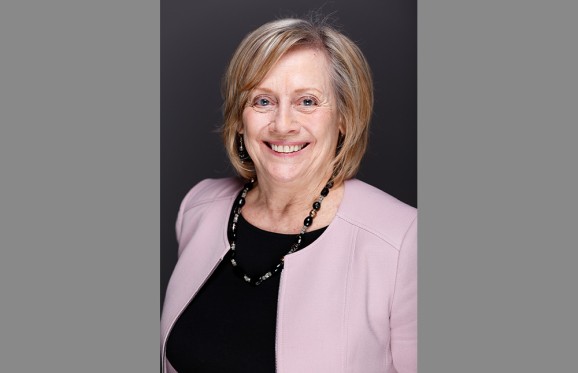Alumni
Lynn Jamieson ’68
When you give through Muskingum, you can change the world!
A Professor Emerita in the Department of Recreation, Park, and Tourism Studies (now known as Health and Wellness Design) at Indiana University (Bloomington, Indiana), Dr. Lynn Jamieson has dedicated her career to ensuring that the physical and mental health benefits of parks, recreation, leisure, and sports opportunities are available to community members of all ages and abilities, particularly youth, underserved populations, and people with disabilities.
She was recently named a “Legend” of the American Academy of Park and Recreation Administration, in recognition of her 50 years of outstanding practice, teaching, and scholarship. Her primary research and practice have focused on building unity and reducing youth crime and violence through sports and leisure programs, including through offering the first course in the United States on sport and violence. She has been key to the study of government policies on sport and leisure and sport and violence.
After earning her Muskingum Bachelor of Arts degree in the Class of 1968, Lynn completed her graduate studies at Indiana University, earning Master of Science degrees in Physical Education (1970) and Recreation (1976), and a doctoral degree in Recreation (Re.D., 1980).
At the beginning of her career, she served as a parks and recreation administrator for areas including Corpus Christi, Texas; San Diego, California; and Johnson County, Kansas, which encompasses many communities of the Kansas City, Kansas, and Kansas City, Missouri metropolitan area.
From 1980-1993, she was a member of the Recreation Administration faculty of California Polytechnic State University (San Luis Obispo, California), where she was active in teaching outdoor recreation, recreational sport, administration, tourism and commercial recreation, and research courses. Early in her higher education career, Lynn married Stephen Wolter and they became the parents of Byron (now 36) and Ben (now 29).
Lynn joined Indiana University’s faculty in 1993, serving for 25 years before retiring in 2018. Along with her active teaching and extensive research, her multiple faculty leadership roles included Chair of the Department of Recreation, Park and Tourism Studies; Director of the Center for Sport Policy and Conduct; and Executive Director of the University’s 2500-acre Bradford Woods Outdoor Center, Hilltop Garden and Nature Center, and the National Center on Accessibility, which promotes access and inclusion for people with disabilities in parks, recreation, and tourism. Her teaching roles at IU included management courses in parks and recreation, research methods, youth sport management, sport and violence, and tourism.
She has been an invited visiting scholar and practitioner in China, Australia, England, Scotland, Costa Rica, Hong Kong, Turkey, Macau, South Africa, Taiwan, Tanzania, and Zanzibar; is a prolific author of numerous publications; and a respected leader in her field’s national and international professional organizations. Her work on competencies in recreational sports formed the basis for the National Intramural-Recreational Sports Association certification program. Her research has been cited in doctoral works from 16 countries, involving 49 replications or citations and 68 individual authors.
In 1986, Lynn and her husband founded the consulting firm Visions, which assists recreation and tourism organizations throughout the country and around the world with master planning, business development, and parks and recreation management.
A Paterson, New Jersey native, Lynn recalls “I was born into the profession of recreation and leisure. Both of my grandfathers and my great uncle were engaged with youth. My grandfathers – one as a park commissioner and the other as a high school teacher – were leaders in helping underserved populations in the community. I was further influenced by my own rehabilitation from polio, which I contracted at age 4, and the resulting need for me to be physically active throughout my life.”
Her great uncle, Charlie Jamieson, who was recently inducted into the Cleveland Indians Hall of Fame, played a major role in providing support for urban youth who wanted to play baseball and engage in healthy recreational pursuits. He assisted Lynn’s grandfather, Walter Jamieson, who was a parks commissioner in Paterson for over 20 years, in establishing a midget league baseball program with 800 participants. The youth field in Paterson’s Eastside Park is dedicated to Walter Jamieson, and Lynn’s childhood trips to Paterson’s parks were early indicators of her lifelong career passion.
“I chose Muskingum because I loved the idea of a liberal arts education. Growing up 30 minutes from New York City, I was able to experience and develop a great appreciation for art, theatre, language, and history, and I knew how valuable the Muskingum education would be in building on those interests. While at Muskingum, I majored in Health and Physical Education becoming a certified K-12 teacher, became fluent in French, helped lead many campus events such as Homecoming, was involved in multiple club activities, and explored a wide variety of my other interests. I also waitressed in the dining hall all four years on a Muskingum work grant, which helped me afford my education.”
“The blend of my Muskingum liberal arts education, physical education expertise, and leisure behavioral focus has been an incredible resource for creativity in research, teaching, and service. The small classes and personal mentoring relationships I experienced with my Muskingum professors shaped my approach to teaching, enabling me to develop lifelong connections with my own students.”
“I have had the opportunity to visit Muskingum’s campus several times in recent years, to attend my class reunions and to work with student organizations on how they can constructively develop programs to serve the University and the community.”
“It is exciting to see how the entire University is thinking strategically about its role in the community, how outreach opportunities build into new programs, and how the new Health and Wellness Center can benefit students’ education and the well-being of the entire region.”